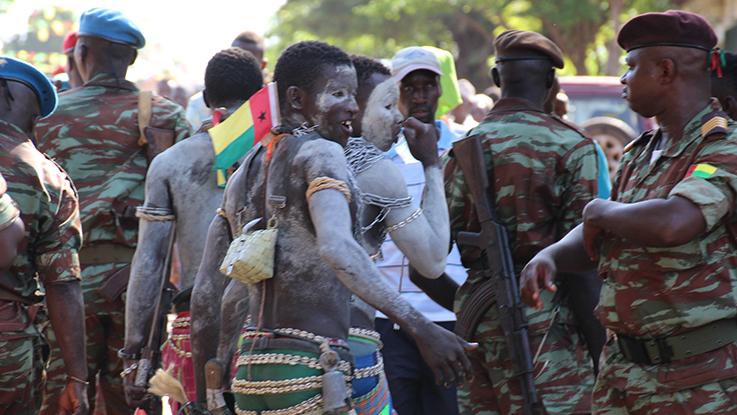According to the UNESCO Declaration, "tolerance is first and foremost an active attitude based on the recognition of the universal rights of the human person and the fundamental freedoms of the other." It goes on to say that "it is a virtue that makes peace Possible and contributes to replace a culture of war with a culture of peace.”
Guinea-Bissau can be considered a country of tolerance because, despite its ethnic-cultural mosaic, cyclical political and military problems, and because it is in a continent where there are many ethnic and religious problems, there is no war.
For Bissau-Guineans, tolerance does not mean incapacity or cowardice, but a virtue that can contribute in any way to peace and development of any country.
Pastor Cláudio Silva, of the “Rádio Luz”, said that his religious institution always defended that religious tolerance should exist universally and that this was always the program of its broadcaster.
"Our broadcaster since its inception 11 years ago, has deployed a system of communicating in all ethnic languages of the nation, there has always been a message of peace, there has always been religious tolerance, until we recognize that there is religious intolerance in Guinea-Bissau, there is absolute freedom and we understand that the contribution of “Radio Luz” is very great, in which a unifying, conciliatory and reconciling message can be transmitted at the national level.”
Mamadú Baldé, the General Manager of “Rádio Sensibilização” said this station "has done everything for peace, since its actions are based on Koranic principles and the dissemination of peace related messages."
According to Father Francisco Fernandes, deputy rector of the major inter-diocesan seminary of Guinea-Bissau, tolerance does not mean cowardice, but rather gives opportunity to solve problems. "We have to think twice, find our limits and see what we need to work over and improve at this moment. Today, because of a lack of tolerance, a failure to understand others and accept differences, we are witnessing attacks, even religious ones such as those in Nhoma and Bedanda in the south of the country. "
For Guadalupe de Sousa Reis, head of the UNIOGBIS Human Rights Section, tolerance is summed up in three words: respect for diversity.
"The lack of respect for human dignity and its diversity leads to intolerance and this intolerance can begin in the form of discrimination of various kinds that passes through fear, hatred, racism, and xenophobia. For example, we consider refugees and migrants as a burden or a threat and this intolerance can lead to armed conflict, so it is necessary to fight intolerance from the beginning so that it does not go too far. "
The United Nations is committed to strengthening tolerance to promote mutual understanding between cultures and peoples. This imperative is at the heart of the Charter of the United Nations as well as the Universal Declaration of Human Rights, and it is more important than ever in this age of growing extremism and violence, as well as widespread conflicts that are characterized by contempt for human life.
Ban Ki-moon in his message said that "the UN has launched a new campaign to promote tolerance, respect and dignity around the world. We simply call it "Together". This campaign was designed as a specific response to the xenophobia faced by so many refugees and migrants, and to highlight the benefits of diversity and migration. But it is also part of the overall of our efforts to promote mutual understanding and harmony around the world. "
According to UNESCO Director-General Irina Bokova, in her message on the occasion of International Day for Tolerance, "in a world marked by diversity, tolerance is a prerequisite for peace. It is also a lever for sustainable development, as it encourages the building of more inclusive and therefore more resilient societies that are able to draw inspiration from the ideas, creative energy and talents of each of its members. "
The celebration of the Day is destined not only to governments and organizations, but also to communities and citizens, and it is up to everyone to promote tolerance in their space and in the world.






